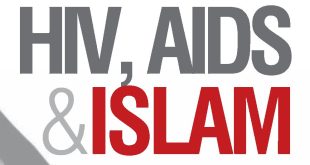Q:) Can you give me a list of animals that are Halal and Haram according to the Hanafi School?
In the name of Allah, Most Compassionate, Most Merciful,
A:) Islam is a religion of mercy and compassion. It only commands and prohibits that which is in the best interests of the human being. The human mind however, due to it being very limited and restricted, may not be able to understand the logic behind every ruling. It may not be able to comprehend properly why a particular ruling is given, but Allah Most High- the Merciful and All-Knowing- is the best to decide what is beneficial and harmful for us, for He is the one who created us.
Allah Most High blessed humanity with His beloved Messenger (Allah bless him & give him peace), as a light and light-giving. The Sacred Law (Shariah) of Islam that the Messenger of Allah (blessings and peace be upon him) came with from Allah differentiated between a living and a dead animal. Dead animals were declared unlawful (haram). Certain animals that were harmful to the welfare of humans were also prohibited, such as pigs, dogs, cats and wild animals. Thus, the animals that have been prohibited for consumption by Shariah is due to the fact that they are harmful for human consumption, whether we realize and understand this or otherwise.
After understanding the above, it should be noted that each of the four Sunni Schools of Islamic law (madhhabs) have their own principles (based on the guidelines of the Qur’an & Sunnah) with regards to which animals are lawful (halal) and which are unlawful (haram) for consumption.
Below are the basic principles of permissibility and impermissibility in the Hanafi School with regards to animal consumption, as mentioned in the classical books of Hanafi jurisprudence. (Culled from: al-Fatawa al-Hindiyya, 5/289-291, Bada’i al-Sana’i, 5/35-39 and Radd al-Muhtar, 304-308)1) Animals that have been clearly and explicitly prohibited in the Qur’an or Sunnah are without doubt Haram, such as a swine, donkey, etc.
2) Animals that are born and live in water are all Haram with the exception of fish. All types of fishes are Halal, with the exception of that which dies naturally in the sea without any external cause. However, if a fish was to die due to some external cause such as cold, heat, being thrown to the shore by the water, colliding with a stone, etc, then it would be Halal.
Allah Most High says:
“Forbidden to you (for food) are: dead meat, blood, the flesh of swine…..” (Surah al-Ma’idah, V: 53)
[booking_product_helper shortname=”holidaybookings”]In the above verse, Allah Almighty forbade the meat of all dead animals without differentiating between sea-animals and land-animals. Thus, all sea-animals would also be included in this general prohibition. However, fish has been exempted from this general ruling due to the explicit mention of its permissibility by the Messenger of Allah (Allah bless him & give him peace).Sayyiduna Abd Allah ibn Umar (Allah be pleased with him) narrates that the Messenger of Allah (Allah bless him & give him eternal peace) said: “Two types of dead meat and two types of blood have been made lawful for our consumption: The two dead meats are: fish and locust, and the two types of blood are: liver and spleen.” (Sunan Abu Dawud, Musnad Ahmad and Sunan Ibn Majah)
Moreover, there is no mention in the Sunnah literature that the Messenger of Allah (Allah bless him & give him peace) or his Companions (Allah be pleased with them all) ever consumed the meat of a sea-animal besides the fish, hence if it was permitted, it would have at least been consumed once in order to show its permissibility. (Dars Tirmidhi, 1/280)
As far as the fish which dies naturally in the sea without an external cause (samak al-tafi) is concerned, Sayyiduna Jabir ibn Abd Allah (Allah be pleased with him) narrates that the Messenger of Allah (Allah bless him & give him peace) said: “What the sea throws up and is left by the tide you may eat, but what dies in the sea and floats you must not eat.” (Sunan Abu Dawud, no: 3809 & Sunan Ibn Majah)
Sayyiduna Ali (Allah be pleased with him) forbade the selling of naturally dead fish (floating fish) in the markets. (Bada’i al-Sana’i, 5/36 and al-Ikhtiyar)
In light of the above, all sea-animals are Haram except for fish. It will be permitted to eat a fish even without slaughtering it according to the rules of Shariah. However, a fish that dies naturally without an external cause and begins to float on the surface of the water (Samak al-Tafi) is also considered Haram.
3) The third principle is that, amongst the land-animals, those that have no blood in them are considered Haram, such as a hornet, fly, spider, beetle, scorpion, ant, etc.
Allah Most High says:
“…for he (the Prophet) commands them what is just and forbids them what is evil; he allows them as lawful what is good (and pure) and prohibits them from what is bad (and impure)…” (Surah al-A’raf, V: 157)
Thus, animals that don’t contain blood such as spiders and others are considered to be from “what is impure” because a sound natured person would detest their consumption.
The only exception is that of a locust, for the Messenger of Allah (Allah bless him & give him peace) clearly permitted its consumption, in the Hadith of Sunan Abu Dawud and Musnad Ahmad quoted earlier.
Similarly, Ibn Abi Awfa (Allah be pleased with him) was asked concerning the consuming of a locust and he said: “I fought with the Messenger of Allah (Allah bless him & give him peace) in six or seven battles, and we used to eat it (locust) with him. “ (Sunan Abu Dawud, no: 3806)
4) The forth principle is that those land-animals who have blood in them but the blood does not flow, in other words animals that do not have flowing blood, are also considered Haram, such as a snake, lizard, chameleon, etc.
5) The fifth principle is that all types of pests (hasharat al-Ardh) are also considered Haram, such as a mouse, hedgehog, jerboa, etc.
The reasoning behind the prohibition of these animals is the same verse of Surah al-A’raf quoted above, in that they are considered impure (khabith) for consumption.
6) The sixth principle is, land-animals who have flowing blood in them and they survive on grass and leaves, and do not prey on other animals (i.e. non-predatory terrestrial animals) are all considered Halal, such as a camel, cow, goat, buffalo, sheep, deer, etc, although there is a slight difference of opinion within the Hanafi School with regards to the consumption of horse-meat, as will be discussed later. Also, a donkey is exempted from this general ruling, in that its meat in considered Haram for consumption.
Allah Most High says:
“And cattle (an’am), He has created for you, from them you derive warmth, and numerous benefits, and of their (meat) you eat.” (Surah al-Nahl, V: 5)
And:
“It is Allah Who made cattle for you, that you may use some for riding and some for food.” (Surah al-Mu’min, V: 79)
In the above two verses, Allah Most High uses the term “al-An’am” (cattle) which refers to non-predatory animals, according to the unanimous agreement of all the linguistics.
As far as the consumption of horse-meat is concerned, Imam Abu Hanifa (Allah have mercy on him) considers is somewhat disliked (makruh tanzihan) due to its honour and due to the fact that a horse is needed in Jihad. Imam Abu Yusuf and Imam Muhammad (Allah have mercy on them both) consider it Halal, and it is said that Imam Abu Hanifa also retreated to this opinion. Thus, it would be permitted to consume horse-meat, although better to avoid.
With regards to the meat of a donkey and mule, Allah Most High says:
“And (He has created) horses, mules, and donkeys, for you to ride and use for show; and He has created (other) things of which you have no knowledge.” (Surah al-Nahl, V: 8)
So, in regards to all other non-predatory animals, Allah Almighty mentions that He has created them for consumption (as we have seen in the verses mention earlier). However, with regards to donkeys and mules, He mentions that they are for riding and adornment (zeenah). Had consumption of these animals been Halal, Allah Almighty would surely have mentioned it.
Moreover, Sayyiduna Abd Allah ibn Umar (Allah be pleased with him) narrates that the Messenger of Allah (Allah bless him & give him peace) forbade the meat of donkeys on the day of the battle of Khaybar.” (Sahih al-Bukhari, no: 5202)
Sayyiduna Abu Tha’laba (Allah be pleased with him) narrates that the Messenger of Allah (Allah bless him & give him peace) prohibited the eating of donkey’s meat. (Sahih al-Bukhari, no: 5205)
[booking_product_helper shortname=”holidaybookings”]Sayyiduna Anas ibn Malik (Allah be pleased with him) narrates that a person came to the Messenger of Allah (Allah bless him & give him peace) and said: “The donkeys have been (slaughtered and) eaten.” Another man came and said: “The donkeys have been destroyed.” The Messenger of Allah (Allah bless him & give him peace) ordered a caller to announce to the people: “Allah and His Messenger forbid you to eat the meat of donkeys, for it is impure.” Thus the pots were turned upside down while the (donkey’s) meat was boiling in them.” (Sahih al-Bukhari, no: 5208)With regards to the mules, Sayyiduna Khalid ibn al-Walid (Allah be pleased with him) narrates that the Messenger of Allah (Allah bless him & give him peace) forbade the meat of horses, mules and donkeys.” (Musnad Ahmad, 4/89, Sunan Abu Dawud, no: 3790, Sunan Nasa’i and Sunan Ibn Majah)
7) The seventh principle is that all terrestrial predatory animals and beasts, i.e. animals that hunt with their teeth, are considered Haram, such as a lion, cheetah, tiger, leopard, wolf, fox, dog, cat, etc.
8) The eighth principle is that all birds of prey, i.e. those that hunt with their claws/talons, are considered Haram, such as a falcon, eagle, kite, hawk, bat, etc.
The proof for both these principles (seven and eight) is the famous Hadith of Sayyiduna Abd Allah ibn Abbas (Allah be pleased with him) that the Messenger of Allah (Allah bless him & give him peace) prohibited the eating of all fanged beasts of prey, and all the birds having talons.” (Sahih Muslim, no: 1934)
Hence, all beasts and birds of prey, beasts that hunt with their teeth and birds who hunt with their talons/claws, are unanimously considered Haram.
9) The ninth principle is that birds who do not hunt with their claws and do not prey on other animals, rather they merely eat grains and crop, are all considered Halal, such as a chicken, duck, pigeon, dove, sparrow, crow, etc.
Sayyiduna Abu Musa al-Ash’ari (Allah be pleased with him) says: “I saw the Messenger of Allah (Allah bless him & give him peace) consuming (the meat of) chicken.” (Sahih al-Bukhari, no: 5198)
10) The tenth principle is that if a Halal animal only consumes impure things to the extent that it creates bad odour in its meat and milk, then it will be Makruh to consume its meat and drink its milk. However, if it consumes other things along with the impure, or if it does not create bad smell in its meat and milk, then the meat and milk will be totally Halal. (Radd al-Muhtar, 6/340)
It is stated in al-Fatwa al-Hindiya:
“A chicken will only be considered a jallalah (hence makruh) if the majority of what it eats is impure, and that it penetrates into the meat in such a way that it creates a bad smell.” (See: al-fatawa al-Hindiyya, 5/289)
11) The last principle is that if one parent of an animal is Halal and the other Haram, consideration will be taken of the mother. Thus, if the mother is a Halal animal, the offspring would also be Halal, such as a mule whose mother is a cow. If however, the mother is a Haram animal, the offspring would also be Haram, such as a mule whose mother is a donkey.
The above were eleven general and broad principles with regards to the consumption of animal meat, according to the Hanafi School of thought. It should be noted here that the meaning of Halal is merely that one may eat of the animal, but there are separate rules with regards to slaughtering and hunting these animals, for which one may refer to previously posted articles or the books of Fiqh. Failure to comply with these rules may well render a Halal animal Haram.
In light of the above general principles, the following is a list of Halal and Haram animals in the Hanafi School: (Both these lists of animals are not exclusive)
Animals whose meat is Halal:
1) Camel
2) Goat
3) Sheep
4) Buffalo
5) Stag
6) Rabbit
8) Wild-ass (The prohibition in the Hadith is of domesticated donkeys)
9) Fish (of all types, including prawns according to those who consider prawns to be a form of fish. Others however, don’t permit its consumption, for they don’t consider prawns to be from the fish family. For details, see an earlier post).
10) Deer/Antelope/Gazelle
11) Duck
12) Heron (grey or white wading bird with long neck and long legs and (usually) long bill).
13) Nightingale
14) Quail
15) Parrot
16) Francolin
17) Locust
18) Partridge (heavy-bodied small-winged South American game bird)
19) Lark (North American yellow-breasted songbirds)
20) Sparrow
21) Goose
22) Ostrich
23) Dove
24) Pigeon
25) Stork
26) Rooster
27) Chicken
28) Peacock
29) Starling
30) Hoopoe (any of several crested Old World birds with a slender down-curving bill, known in Arabic as Hudhud- that was sent by Sayyiduna Suleyman (peace be upon him).
Animals whose meat is Haram:
1) Wolf
2) Hyena
3) Cat
4) Monkey
5) Scorpion
6) Leopard
7) Tiger
8) Cheetah
9) Lion
10) Jerboa
11) Bear
12) Swine/pig
13) Squirrel
14) Hedgehog
15) Snake
16) Tortoise/Turtle
17) Dog
18) Crab
19) Jackal
20) Donkey (domesticated)
21) Lizard (The Messenger of Allah (Allah bless him & give him peace) forbade the eating of a Lizard. Recorded by Imam Abu Dawud in his Sunan from Abd al-Rahman ibn Shibl (Allah be pleased with him). Hadith no: 3790)
22) Fox
23) Crocodile
24) Weasel
25) Elephant (Radd al-Muhtar, 6/306)
26) Falcon
27) Hawk
28) Kite
29) Bat
30) Vulture
31) Mouse
32) Rat
33) All insects, such as a Mosquito, Fly, Wasp, Spider, Beetle, etc.
Post Disclaimer | Support Us
Support Us
The sailanmuslim.com web site entirely supported by individual donors and well wishers. If you regularly visit this site and wish to show your appreciation, or if you wish to see further development of sailanmuslim.com, please donate us
IMPORTANT : All content hosted on sailanmuslim.com is solely for non-commercial purposes and with the permission of original copyright holders. Any other use of the hosted content, such as for financial gain, requires express approval from the copyright owners.
 Sri lanka Muslims Web Portal Sri Lanka Muslims News Center
Sri lanka Muslims Web Portal Sri Lanka Muslims News Center
 Donate
Donate


